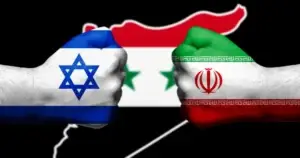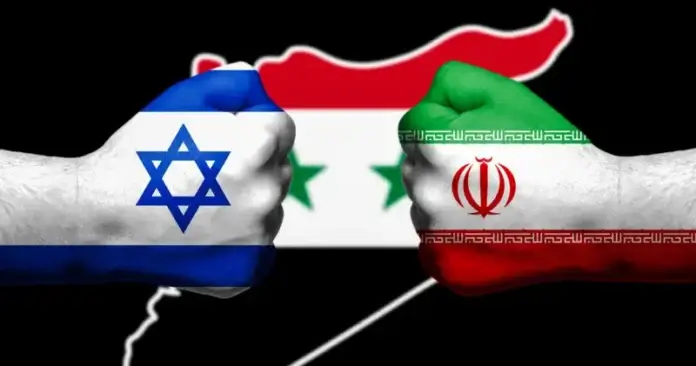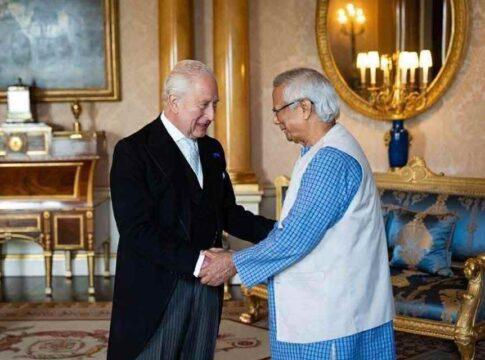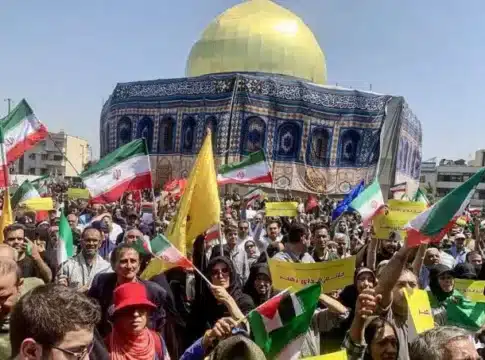Iran Israel Military Tensions: Where Do They Stand in the Balance of Power?
📍 Dhaka, 18 June 2025 | ✍️ Reporter, Finix News Desk
The ongoing military tension between Iran and Israel in the Middle East is signaling a potential new crisis in global geopolitics. Following the assassination of Hezbollah leader Hassan Nasrallah, Iran launched a missile strike in retaliation, prompting a forceful response from Israel. With both nations escalating their military posturing, the prospect of a direct war is drawing growing international concern.

Supreme Leader Khamenei: “Iran Will Never Compromise with Zionists”:
In a strong statement, Iran’s Supreme Leader Ayatollah Ali Khamenei reiterated that Iran will never reconcile with Zionists, intensifying the rhetoric amid rising conflict.
Both Nations Among World’s Top 20 Military Powers:
According to the 2025 Global Firepower (GFP) rankings, Iran is positioned 14th in global military strength, while Israel stands at 17th. This positions both nations as formidable forces in the region with distinct military advantages.
Troop Strength and Defense Budget:
Iran holds a significant edge in manpower, with a combined total of 1.18 million active and reserve personnel. In contrast, Israel maintains approximately 670,000 troops. However, Israel surpasses Iran in defense spending, allocating $24.4 billion annually compared to Iran’s $9.95 billion.
Air Power: Israel Ahead in Aircraft and Helicopters:
Israel has a clear upper hand in air capabilities:
- Total aircraft: Israel – 612 | Iran – 551
- Fighter jets: Israel – 241 | Iran – 186
- Helicopters: Israel – 146 (including 48 attack helicopters)
- Iran – 129 (with only 13 attack helicopters)
Ground Forces: Iran Leads in Tanks and Armored Vehicles:
Iran’s advantage lies in ground warfare equipment:
- Tanks: Iran – 1,996 | Israel – 1,370
- Armored vehicles: Iran – 65,765 | Israel – 43,403
- Rocket artillery: Iran – 775 | Israel – 150
- Self-propelled artillery: Iran – 580 | Israel – 650
Naval Capabilities: Iran Dominates in Submarine Count:
Iran holds the numerical advantage in naval assets:
- Naval vessels: Iran – 101 | Israel – 67
- Frigates: Iran – 7 | Israel – 0
- Patrol boats: Iran – 21 | Israel – 45
- Submarines: Iran – 19 | Israel – 5
Nuclear Capability: Israel Possesses, Iran Suspected:
According to the Stockholm International Peace Research Institute (SIPRI), Israel is one of the nine countries known to possess nuclear weapons. Iran, however, does not officially hold any nuclear arms. While Western nations continue to suspect Iran of covert nuclear development, Tehran maintains its program is strictly peaceful.
Rising Conflict, Global Concern:
Experts warn that a full-scale conflict between Iran and Israel could have catastrophic regional and global consequences. While Iran holds an advantage in ground forces and manpower, Israel is technologically superior—especially in air power and nuclear capability.
Analysts emphasize the urgent need for diplomatic intervention. Without de-escalation efforts, the current trajectory could spiral into a broader regional war, pulling in multiple actors and threatening international stability.
What Lies Ahead: The Future of the Iran-Israel Conflict:
As tensions escalate between Iran and Israel, global analysts are increasingly focused on what the future may hold if the current military standoff turns into open warfare. With each side testing limits through proxy engagements and direct retaliations, the potential for a large-scale regional conflict is becoming more plausible and more alarming.
A direct war between Iran and Israel would not be confined to conventional battlefields. Instead, it would likely involve asymmetric warfare, cyberattacks, and strikes by proxy militias such as Hezbollah in Lebanon and Iran-backed groups in Iraq, Syria, and Yemen. Israel, for its part, has a highly integrated missile defense system, advanced surveillance technologies, and strong Western support, particularly from the United States.
Should full-scale war erupt, key regional players like Saudi Arabia, the United Arab Emirates, and Turkey may be forced to take sides either overtly or strategically. International oil markets would face severe disruption, leading to global economic shocks. Meanwhile, civilian populations across the region could face displacement, infrastructure damage, and humanitarian crises.
Diplomatically, world powers including the U.S., Russia, China, and the EU may seek urgent mediation to avoid a broader Middle East war. However, ideological rigidity and mutual distrust between Tehran and Tel Aviv remain significant barriers to peace.
Unless there is immediate diplomatic de-escalation, the Iran-Israel conflict could evolve from strategic posturing into a prolonged, multi-front war with devastating regional and global consequences.
📌 Finix News Desk
📞 Contact: [email protected]



